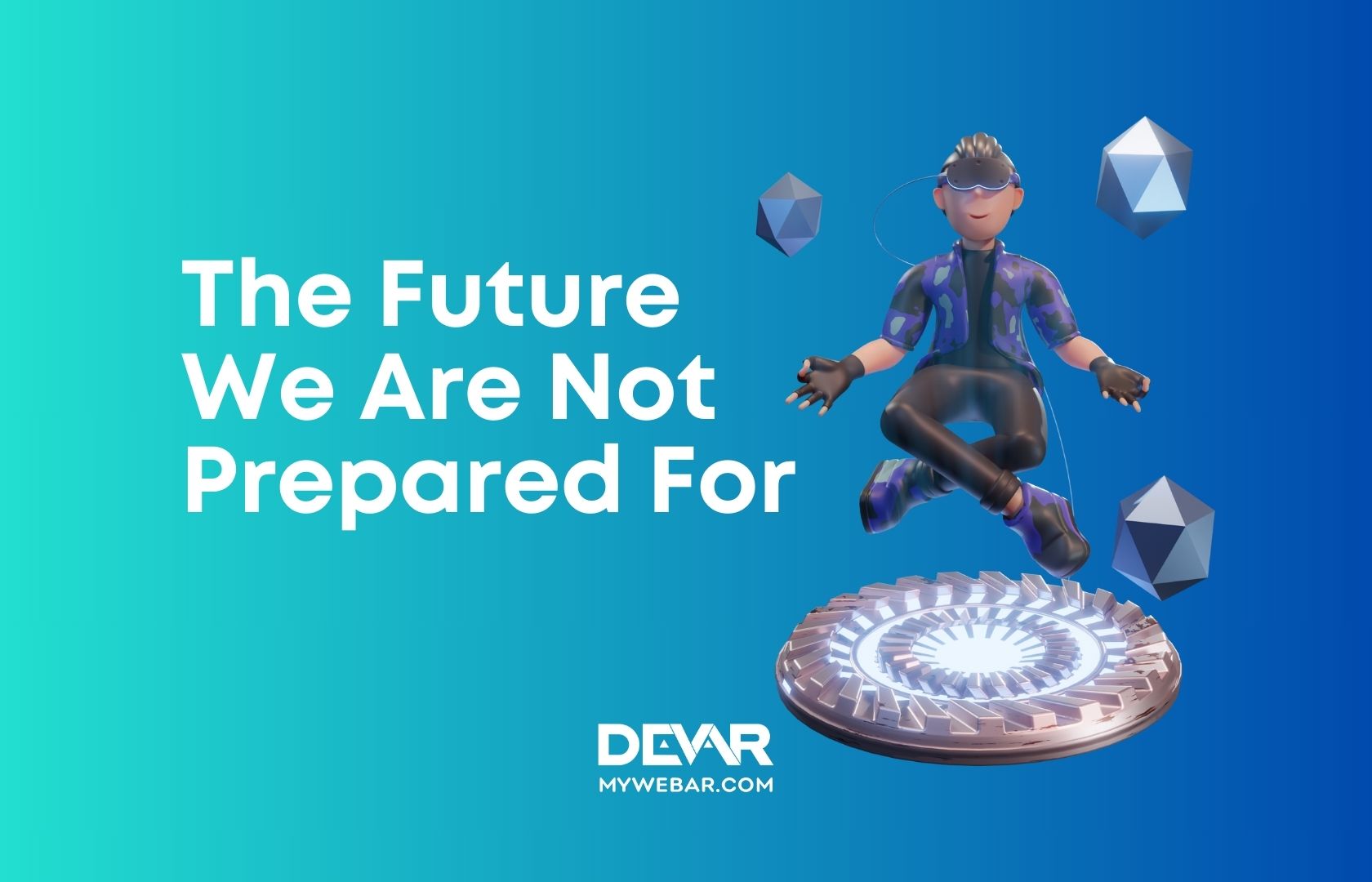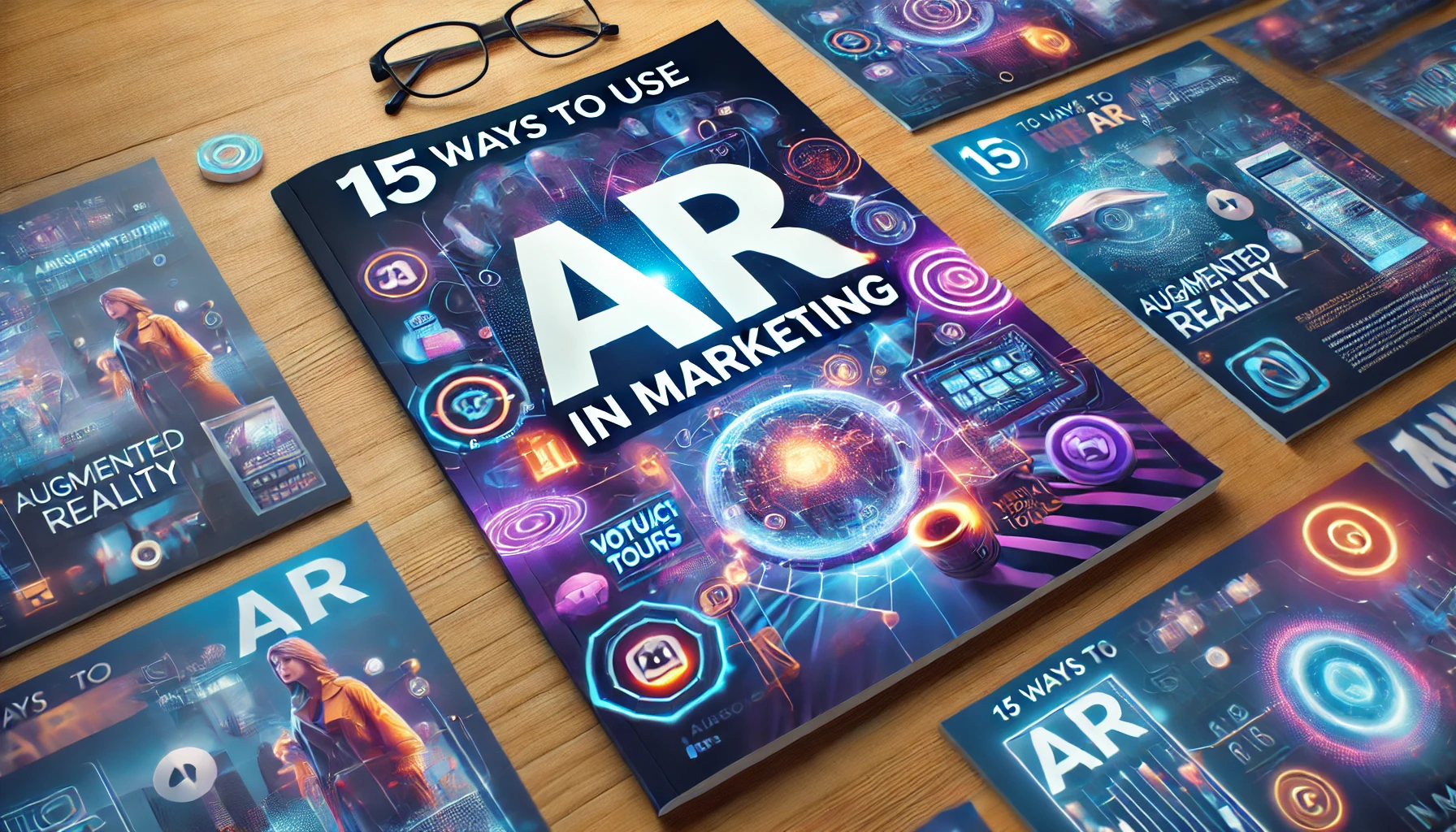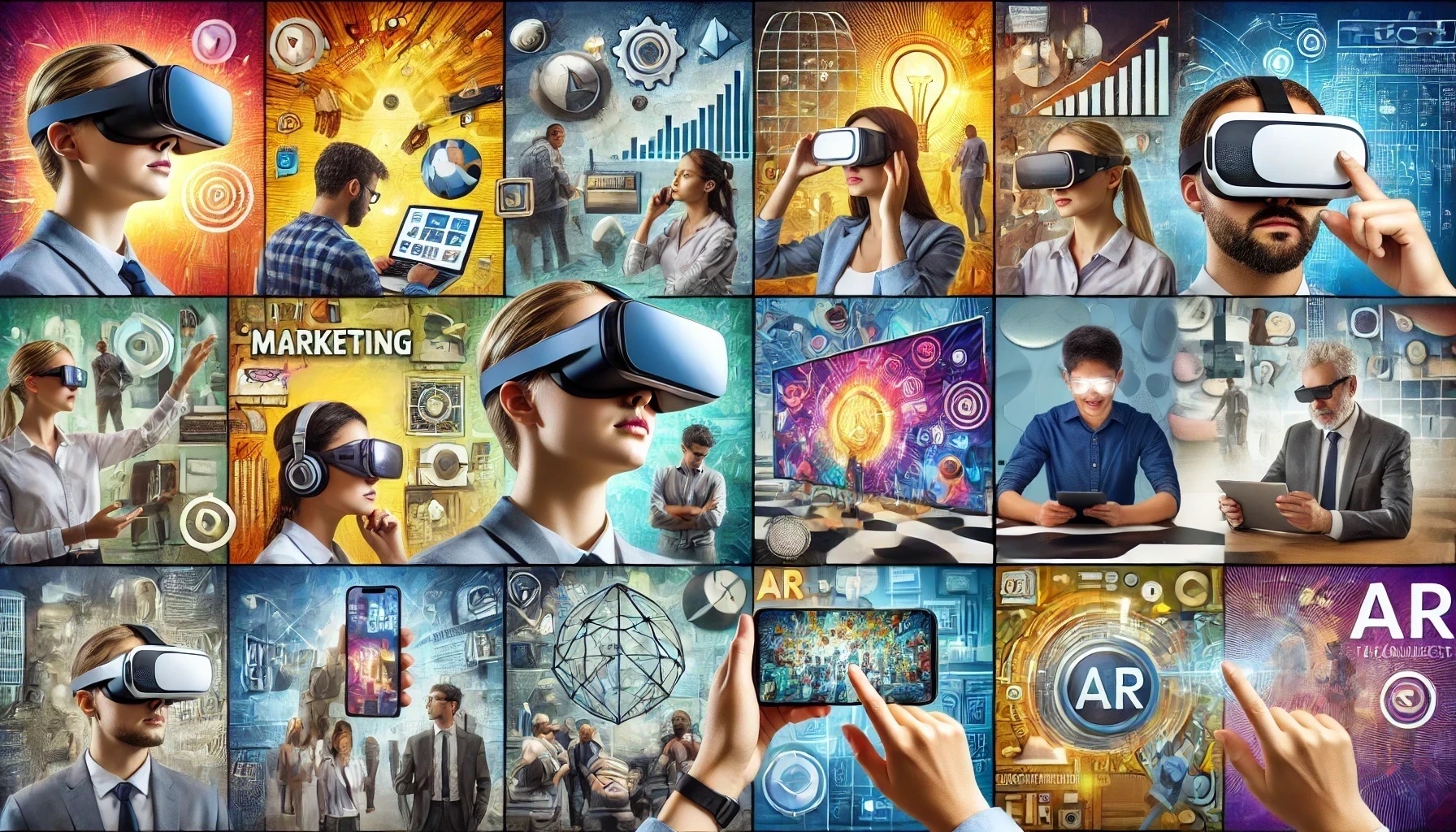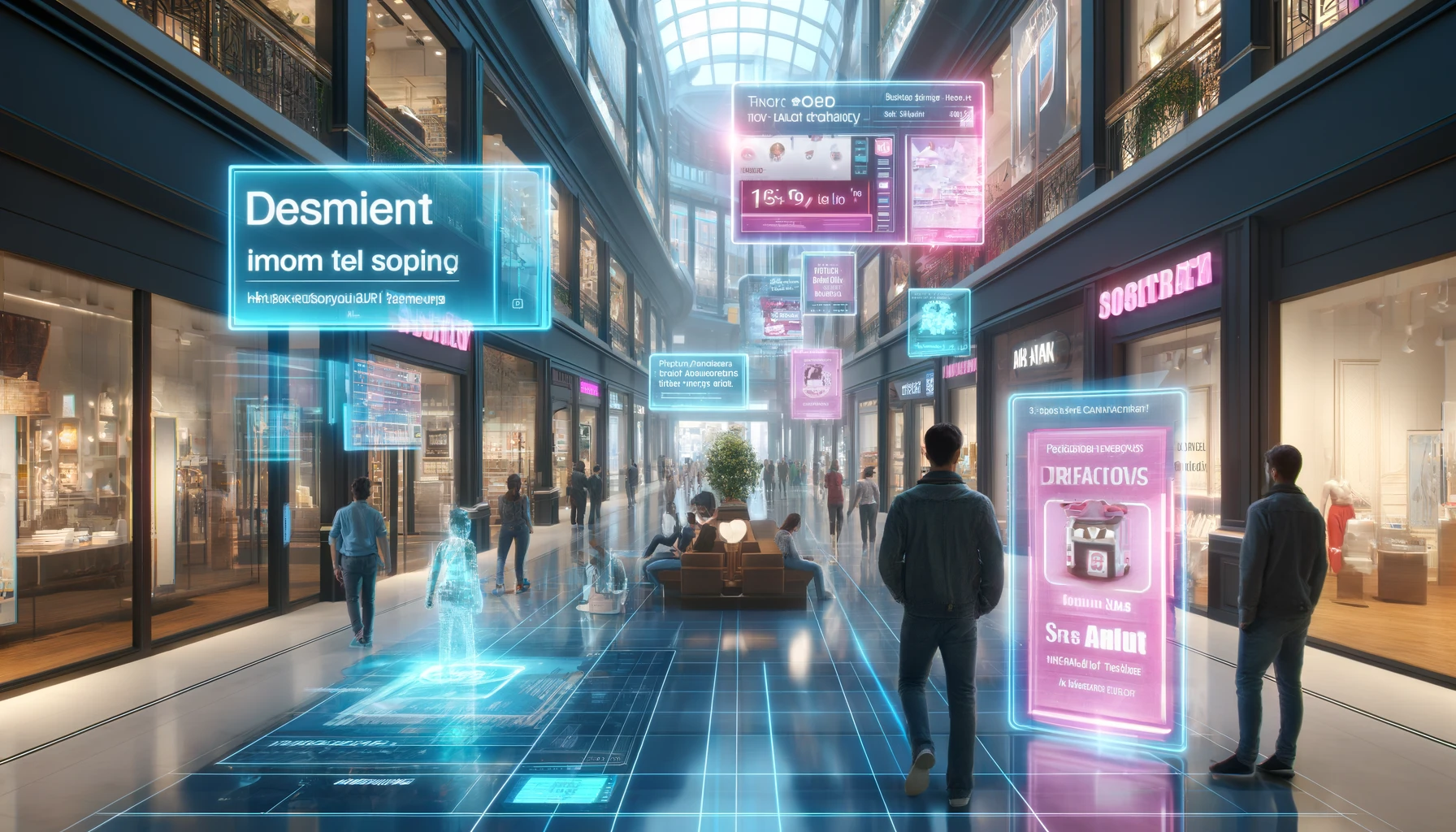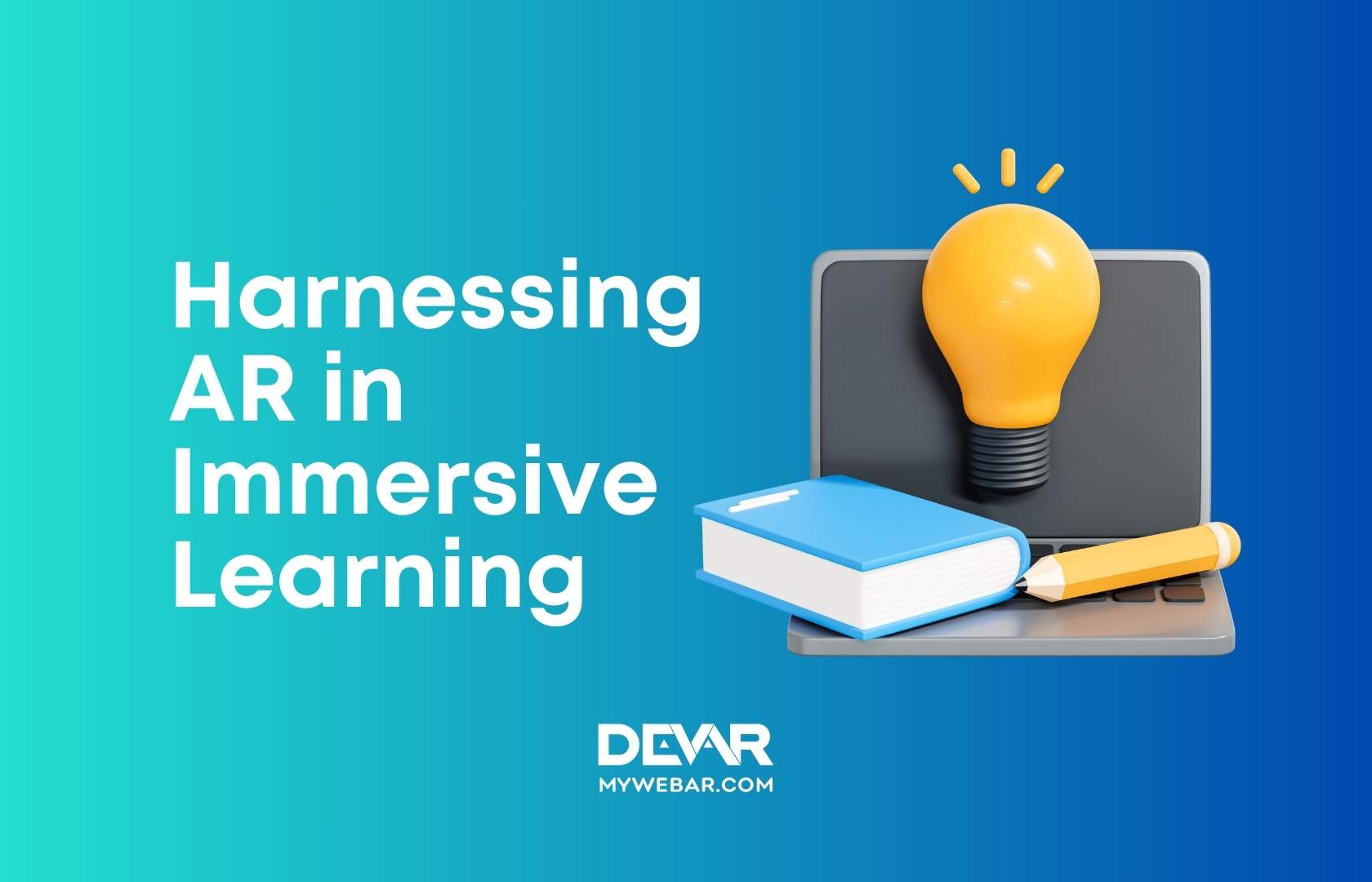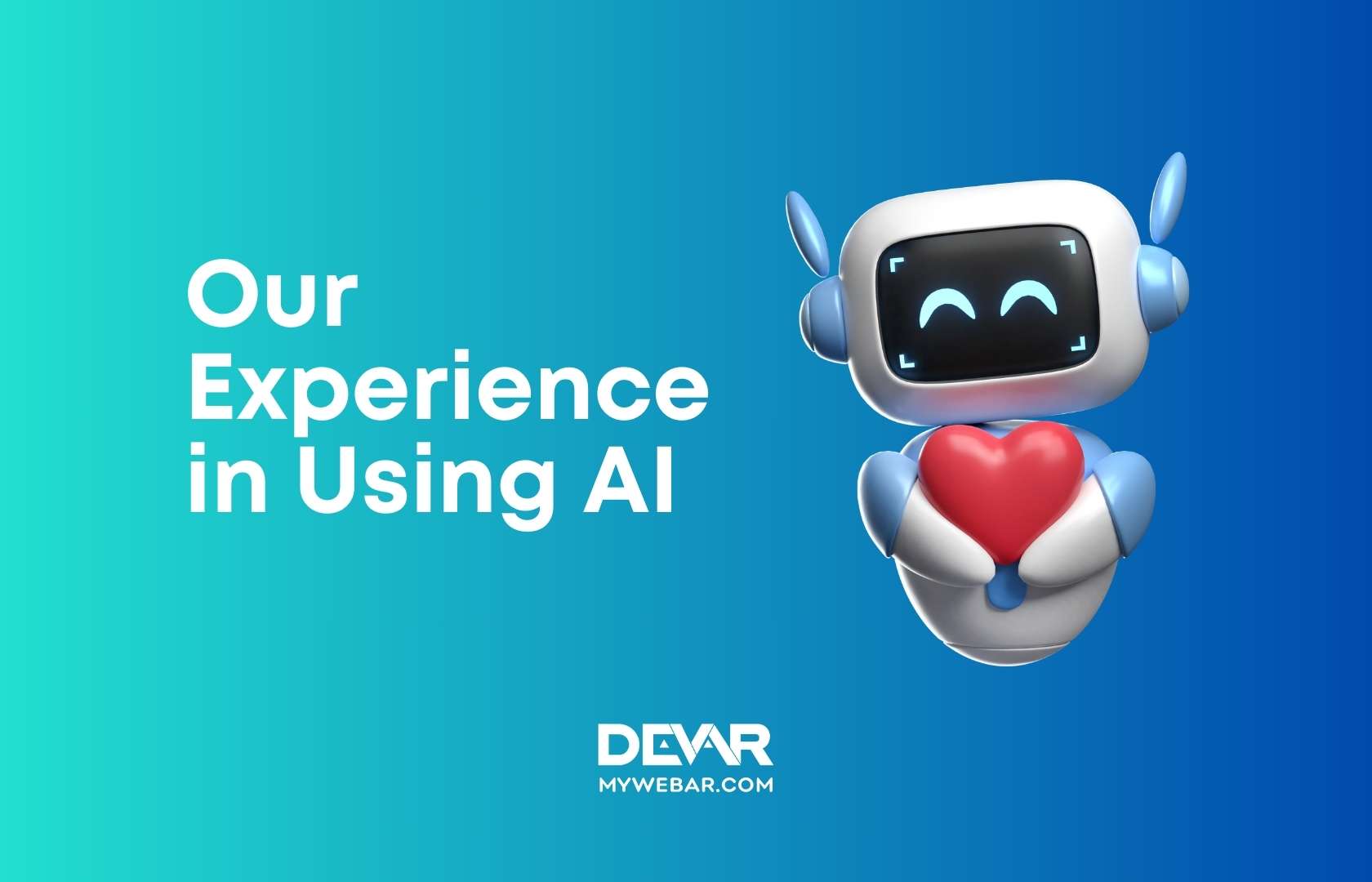Before you is the personal story of Sean Cooper, the creative director of a well-known marketing agency, the name of which, for understandable reasons, we cannot disclose.
In this article, he shares his thoughts, ideas, and research on how people resisted new technologies that still managed to infiltrate their lives and turn them upside down. He also discusses how AR and new gadgets like Apple Vision Pro can completely transform the approach to online commerce.
What it all started with…
My nephew Chris is two years old, and he knows how to use a smartphone better than me. I swear, sometimes I don’t even notice such amazing gadget usage in adults. Chris was literally born with a smartphone in his hands. And this has made him more adapted to the world of the future than you and me.
Let’s skip the details of upbringing. Although even the American Academy of Pediatrics (AAP) has long allowed children to play with gadgets. Yes, they don’t recommend giving them to children under 18 months and advise watching only high-quality content. Only together with parents, and preferably not more than an hour a day, of course.
But… let’s be honest, in 2011 they didn’t even allow that. Complete ban on gadgets until the age of two or even more. And no TV!
Are we afraid that children will become smarter than us? Well, there’s absolutely nothing to be afraid of here! Because they will become smarter anyway.
But what is much more important, in my opinion, is what will happen to us? To me, to my colleagues and friends who were not fortunate enough to be born with a smartphone. Will we be ready for the world of the future and the changes it will bring to our everyday lives? Or will we simply remain observers with a dumb and clueless look?

If you have already read my previous article about QR codes, you may remember my conversation with my good friend and colleague in creative development, Chloe Jamal. She told me about the fear of change. How the human mind is structured in such a way that it simultaneously harbors two conflicting vectors. One is geared towards stability, while the other is focused on change and growth.
Surely, many of you also have moments when, upon updating a familiar application, you think, “Damn! Did they change the interface again? The previous one was better!” No, well, sometimes the previous one really could have been better. And sometimes we simply feel discomfort because we have to get used to something new again. Or the layout of products in the nearest store has changed, and you weren’t prepared for it. Innovations almost always annoy us, don’t they?
For example, not long ago, I was angry and dismayed. Because the menu at my favorite restaurant was replaced with a boring black-and-white QR code. And that’s when Chloe told me, “You know, Sean, desiring stability and not wanting anything to change is a normal human strategy. After all, change is very difficult. The old and familiar order is already established and predictable, while changes bring chaos into life. We cannot control them, and that’s why we are afraid.”
Back then, I didn’t understand it, but now I fully realize that Chloe was right. Most of us are so afraid of change that sometimes, even unconsciously, we hinder our own opportunities for further development. Moreover, this can be related to practically anything! Starting from our attitude towards the world around us, friendships, partnerships, fashion, and of course, our attitude towards technological progress.
Oh, this relentless technological progress! Centuries go by, and people still want to pitchfork the latest creation of evolution. Do you think that artificial intelligence or robots are the first invention that people have been afraid of?
Ha! Ha! And ha again! I bet that humanity has been dealing with this since the invention of fire. We will never be ready for the future. Because it always arrives suddenly. Almost like tornado season.
Now, I will provide a few historical examples to back up my statement and not just rely on empty words.
Very, Very Scary Technologies
The buzz around neural networks has surely not passed you by. Some feared losing their jobs, while others were horrified by the increasing reach of AI, depriving people of the need to create, think, and analyze.
But do you think this is the only modern horror story? Well, think again!
In recent times, there has been a growing body of research indicating that social media is significantly influencing the neurological functioning of our younger generation. This has caused considerable concern and public outcry regarding the addictive nature of technological products. Furthermore, the popular television series “Black Mirror” has drawn attention to the alarming and dystopian risks associated with the use of technology in our lives.

The World Health Organization is actively investigating the potential link between Wi-Fi and the development of cancer, amplifying anxieties surrounding the safety of wireless networks. Harvard University has also expressed mounting apprehension about the impact of the Internet on privacy, highlighting the need to address the growing concerns surrounding online personal information security. Moreover, Microsoft has released a book that serves as a warning to society about the potential dangers of AI, emphasizing the need for caution and responsible development of this technology.
Should we tremble in fear? Well, there is absolutely nothing new about it. On the contrary, if we dig a little into the history of our ancestors, we will realize how ridiculous the fears of previous generations seem now.
Writing Impairs Our Memory
Have you heard of Socrates? He was a renowned ancient Greek philosopher who lived in the 5th century BCE. A great thinker and the founder of modern philosophy, Socrates had such a significant impact that ancient Greek philosophy is divided into “pre-Socratic” and “Socratic” periods. Quite impressive, isn’t it?
Here’s another interesting fact about Socrates: he despised writing. Yes, you heard it right. I said, “Socrates hated writing.” He made a conscious effort to never put his thoughts on paper because he firmly believed it would lead to a deterioration of memory.
In “The Phaedrus,” written by Plato, there is a dialogue between Socrates and Phaedrus. Socrates shares the tale of the god Theuth, also known as Ammon, who presents the king Thamus with the gift of writing. Among other things, Thamus says: “…for this discovery of yours will create forgetfulness in the learners’ souls, because they will not use their memories; they will trust to the external written characters and not remember of themselves. “
Sorry, but… what?
Dependence on writing, how about that?
Fortunately, his views did not gain widespread acceptance and support from society. Otherwise, the need to orally recite every article or blog post would not only be incredibly burdensome but also drive half of humanity to madness.
Of course, I won’t argue with the fact that our brain is designed in such a clever way that it can easily choose to forget something simply because it knows it doesn’t need to remember it. It seems to be called the Zeigarnik effect (but I don’t remember that for sure, hehe).
And it is true that capturing information in writing can relax us and sometimes even cool us down a little. However, writing is one of the greatest inventions of humanity. And that is an undeniable fact.
Books Overwhelm Us With Information
Conrad Gessner, a renowned Swiss biologist during the 16th century, expressed strong disapproval towards the invention of the printing press. He believed that this revolutionary technology would inevitably lead to an overwhelming influx of information, which he considered would cause immense harm to humanity.
In order to raise awareness about the potential consequences, Gessner dedicated his efforts to informing society about the urgent need for action. His primary concern was to protect the public from the negative effects of what he perceived as an excessive and confusing abundance of books. He emphasized the importance of controlling the trade and distribution of books as a means to alleviate the potential burden of information overload on the general public.
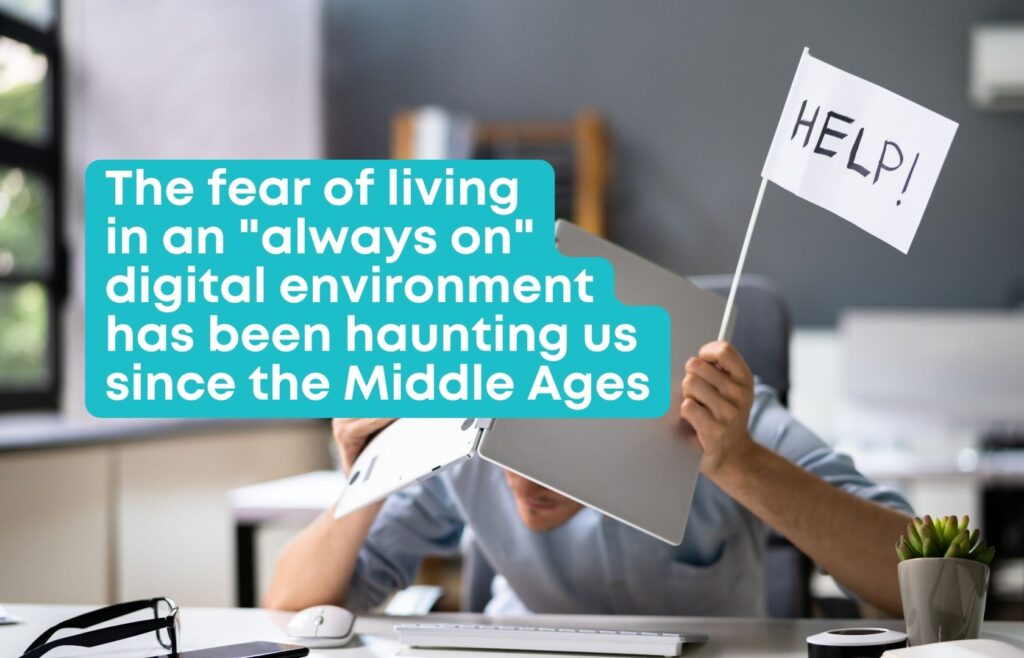
However, was the issue really about books themselves? In essence, Gessner’s apprehension reflected a cautious approach towards the rapid advancement of technology and its potential consequences. The printing press would have made books more accessible, thus altering the established social order. Therefore, it is likely that Gessner’s fear of the unrestricted flow of information leading to confusion and harm for society contributed to his stance.
Rather than embracing the printing press as a tool for disseminating knowledge, Gessner advocated for the intervention of monarchs to regulate the distribution of printed materials. This, in my view, represents a narrow-minded approach to technology.
Electricity Poses a Deadly Danger to Us
During the emergence of electricity in the 19th century, there was a widespread fear and apprehension among many individuals regarding its usage. This fear extended even to influential figures such as U.S. President Benjamin Harrison. It is rumored that Harrison was so afraid of being electrocuted that he had the White House staff handle the task of turning the lights on and off for him. This instance highlights the deep-seated concerns surrounding the potential deadly dangers of this new technology.
The public’s trepidation towards electricity was not limited to high-ranking officials alone. Ordinary citizens experienced equal, if not greater, fear. They were even hesitant to install electric doorbells when they were initially introduced. The unfamiliarity and perceived risks associated with electricity made people reluctant to adopt these new innovations.
It is intriguing to contemplate how astonished these individuals would be if they were to witness the ubiquitous presence of electricity in modern times. From lighting our homes and powering our devices to running industries and transportation systems, electricity has become an indispensable part of our daily lives. It has surpassed the initial fears and reservations that surrounded its introduction. And this is truly remarkable!
Personally, I am not ready to part with my robotic vacuum cleaner, microwave, and the wonderful widescreen plasma TV in our living room.
Radio Drives Us Crazy
In 1936, Gramophone, a music magazine, expressed its concerns about the advent of radio, drawing parallels to the criticisms faced by reading and writing. Interestingly, the magazine opposed radio because it believed that radio diminished the significance of these activities, which the 20th century widely regarded as positive.
Radio had a tendency to captivate children, leading them to divide their attention between mundane school assignments and the captivating excitement of the loudspeaker, according to the magazine. Moreover, it noted that children often experienced restlessness, fear, and nightmares influenced by mystery stories when exposed to radio at night. People have raised similar arguments against nearly every new technology that has emerged, including video games, the Internet, and texting.
For instance, critics have criticized video games for their potential to distract children from academic pursuits, leading to a perceived decline in educational performance. People have also raised concerns about the Internet, fearing that excessive screen time and online interactions may lead to social isolation and a decline in face-to-face communication skills. Additionally, the advent of texting has prompted debates about its impact on language proficiency, as well as concerns about the potential negative effects of constant connectivity on individuals’ mental health.
Email Damages Our IQ
This is one of my favorite and most absurd statements. In April 2005, CNN published an article about the harm of email. The title, and I’m not joking, was “E-mails hurt IQ more than pot.”
Ha, really?
In their article, they reference a “certain British study” (oh, those ubiquitous British researchers) that claims “workers distracted by phone calls, emails, and text messages suffer a greater loss of IQ than a person smoking marijuana.”
Following that are some rather confusing pieces of evidence, and the funniest part is a quote from a certain David Smith of Hewlett Packard.
Wait, hold on. Hewlett Packard. That sounds familiar. Aren’t they the ones who make printers, hmm?
My Conclusions about Technology Fears
“Okay, okay, Sean,” you might say. “Socrates hated writing, people were afraid of doorbells, and they believed that email could lower their IQ. But where the hell are you going with this?”
Well, I’m just pondering about the future and our readiness for it. Remember where I started my story? My nephew Chris is two years old, and he knows how to use a smartphone better than me.
And a smartphone is just the beginning. The world is constantly introducing a multitude of new gadgets and technologies that we don’t even know how to approach. But in reality, it’s only a matter of time before our children master them and make them part of their daily routine.
In ten to fifteen years, people just like Chris will become cool, financially capable members of society. They will come to us for services, expecting us to be able to communicate with them in their language, while all we can offer is grumbling about how gadgets have ruined the youth of today.
Just kidding! Most likely, all of this will happen much sooner.
What, don’t believe me? Then let me give you an example of something that nobody believed in either. And then it simply wove itself into our familiar world and turned it upside down.
Have you already guessed what I’m talking about? Bingo. I’m talking about the Internet.
The Internet Was Not Supposed to Happen…
…but it did.
The pre-1995 perceptions of the Internet were shaped by a mix of excitement, skepticism, and uncertainty. It was a time of exploration and debate, as individuals and society as a whole tried to comprehend the scope and implications of this transformative force.
In any case, that’s how it is written about in modern media. There’s also a popular saying that most people didn’t believe in the Internet and its commercial success. In reality, the situation was much more prosaic.
Before 1995, hardly anyone talked about the Internet because only a very small percentage of people actually understood what it was. Seriously, try explaining this monster to people who live by completely different rules.
To write letters or articles, people used typewriters. Well, or they wrote them by hand. They listened to music on the radio or on vinyl records or cassettes. And people would go to the cinema or simply watch what was shown on television to watch a movie. Yes, and there was no Netflix!
They went to the store to buy groceries and only paid in cash. And for socializing, they went to the park, bar, or nightclub. Of course, they had no concept that someday social networks could appear, connecting not only people from the same city but people from all over the world.
How do you think one could explain the concept of the Internet to these people? They were not at all prepared for it.
In 1995, Windows made the decision to transition to graphics, and online services began connecting to the Internet. It was a real revolution!
And here we are. What’s next?
I’m ready to bet, now it’s going to be a little unexpected. Or maybe not.
Apple Vision Pro and Online Commerce
I just couldn’t ignore the buzz around this device, augmented reality, and what we are absolutely not ready for. And, of course, we are not ready for the future.
The folks at Apple offered us a computer that is completely different from what we are accustomed to. And why should it be any different, really?
This gadget gives its users boundless freedom of self-expression. It practically screams, “The whole world is now your canvas! Create, modify, invent, explore.” Isn’t that a fascinating idea? To me, it’s simply marvelous.
But here’s the thing… is the world itself ready for it?
Let’s take, for example, my favorite topic: online commerce. So, there you are. You have a wonderful online store that brings you quite a good profit. Everything is great in this online store: design, usability, product presentation, the review and payment system, pop-up ads, online consultants, and so on.
By the way, your online store’s layout is perfectly adapted for different devices: laptops, smartphones, tablets… But can users view it in AR?
Most likely, no. Because you did not anticipate such a turn of events and were not prepared for it. No one was.
But here it is, the new gadget, the computer of the future. The more people buy and use it, the more they will actively engage with the content that it offers
And that means, no matter how wonderful and competitive your online store is under the current conditions, adding one more variable to the equation ― and voila! ― everything instantly changes.
Think about it, because something similar happened to the stores that refused to create their own website during the heyday of the Internet.
…and what it all came to.
Throughout history, the introduction of innovative technologies has frequently sparked concerns about potential negative effects on individuals and society. These concerns are not without merit, as excessive or inappropriate use of technology can indeed have negative consequences. It is crucial to find a balance between embracing new technologies and maintaining healthy habits and lifestyles.
The initial concerns and criticisms directed towards new technologies often subside over time as societies adapt and find ways to leverage their advantages while minimizing their drawbacks. It is important to approach technological advancements with an open mind, acknowledging both the potential benefits and challenges they present, and working towards responsible and informed usage to ensure a positive impact on individuals and society as a whole.
So, I have a nephew named Chris. He’s only two years old, but he can already use a smartphone better than me. And believe me, there are many Chrises like him all over the country ― no, not just the country, but all over the world!

Give someone like Chris an Apple Vision Pro or any other modern gadget or technology like AR that still seems unfamiliar to us, and he will effortlessly incorporate them into his life. Moreover, he won’t be able to imagine reality any other way.
I personally have witnessed how children playing with augmented reality books then expect augmented reality from every book. In their worldview, it’s just natural.
Just like for us, sending an email, searching something on the Internet, or visiting the website of our favorite store to make online purchases and pay with a card is second nature.
Therefore, if you feel that you’re not ready for the future that’s coming, think about it. You still have time to adapt properly to it starting right now.
Sincerely yours, Sean Cooper
P.S. In my next article, I will try to delve much deeper and provide much more detailed insights into what exactly awaits us in the field of AR commerce in the near future.
